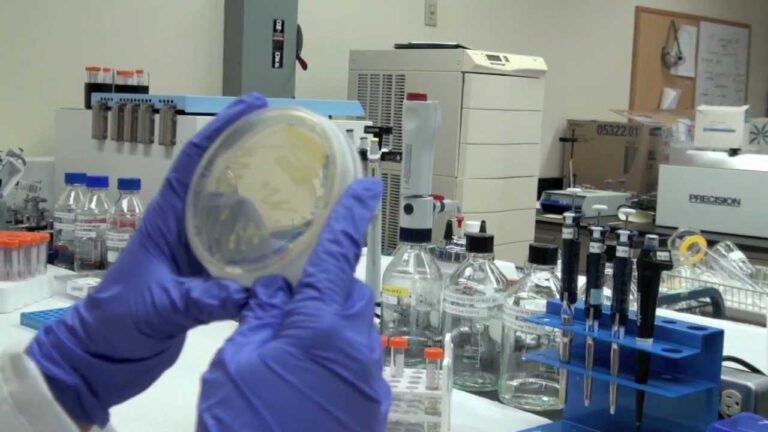Lucrative Emergency Physician Assistant Job: Salary & Description

Emergency Physician Assistant Job Description Template
Emergency Physician Assistant Job Description An emergency physician assistant is a healthcare professional who works alongside emergency physicians in providing medical care to patients in emergency departments. They are responsible for assisting in the evaluation, diagnosis, and treatment of patients with acute illnesses or injuries. Qualifications: To become an emergency physician assistant, one must first complete a bachelor’s degree in a related field, such as biology or pre-med. After that, they must attend an accredited physician assistant program, usually lasting two to three years. Upon graduation, they must pass the Physician Assistant National Certifying Examination (PANCE) to become licensed. Responsibilities: Emergency physician assistants are responsible for a wide range of tasks in the emergency department. They evaluate patients’ medical histories, perform physical examinations, order and interpret diagnostic tests, and assist in procedures such as suturing wounds or setting fractures. They also provide patient education and counseling, ensuring that patients understand their diagnoses and treatment plans. Skills and Abilities: Emergency physician assistants must possess strong communication and interpersonal skills, as they often interact with distressed patients and their families. They must be able to work well under pressure and in a fast-paced environment. Additionally, they should have excellent problem-solving skills and the ability to make quick decisions. Salary and Job Outlook: According to the Bureau of Labor Statistics, the median annual wage for physician assistants, including those in emergency medicine, was $112,260 as of May 2020. The job outlook for physician assistants is also promising, with a projected growth rate of 31% from 2019 to 2029, much faster than the average for all occupations. In summary, emergency physician assistants play a crucial role in providing efficient and effective care to patients in emergency departments. With their extensive training and expertise, they contribute significantly to the overall functioning of the emergency medical team.Emergency Physician Assistant Responsibilities
Emergency Physician Assistant Requirements
How Much Does A Emergency Physician Assistant Make?
Emergency Physician Assistant Salary
| Experience Level | Annual Salary |
|---|---|
| Entry Level | $90,000 – $110,000 |
| Mid-career | $110,000 – $130,000 |
| Experienced | $130,000 – $150,000 |
| Senior Level | $150,000+ |
An Emergency Physician Assistant works in the fast-paced environment of emergency departments, providing care to patients in need of immediate medical attention. The salary of an Emergency Physician Assistant varies based on experience level. Entry-level professionals can expect to earn between $90,000 and $110,000 per year, while mid-career practitioners earn between $110,000 and $130,000. Experienced professionals can earn between $130,000 and $150,000, and those in senior positions can earn $150,000 or more. These salaries may vary depending on factors such as geographic location, healthcare facility, and additional certifications or specializations.
Emergency Physician Assistant Salaries by Country
Top Paying Countries for Emergency Physician Assistant
| Country | Average Salary (USD) |
|---|---|
| United States | $110,000 |
| Canada | $90,000 |
| Australia | $85,000 |
| United Kingdom | $80,000 |
| Switzerland | $75,000 |
An Emergency Physician Assistant plays a crucial role in providing immediate medical care to patients in emergency situations. The salary of an Emergency Physician Assistant can vary significantly depending on the country of practice. Based on average salary data, the top paying countries for Emergency Physician Assistants are the United States, Canada, Australia, United Kingdom, and Switzerland. In the United States, an Emergency Physician Assistant can earn an average salary of $110,000 per year. Canada follows with an average salary of $90,000, while Australia offers an average salary of $85,000. In the United Kingdom, the average salary is $80,000, and in Switzerland, it is $75,000. These countries provide competitive compensation for Emergency Physician Assistants, reflecting the importance and demand for their expertise in emergency medical care.
A video on the topic Emergency Physician Assistant
Video Source : The Physician Assistant (PA) LifeInterview Questions for Emergency Physician Assistant
1. Can you tell us about your experience as an Emergency Physician Assistant?
I have been working as an Emergency Physician Assistant for the past 5 years. During this time, I have gained extensive experience in managing acute medical and trauma cases, performing various procedures, and working collaboratively with the emergency medicine team.
2. What skills do you possess that make you an effective Emergency Physician Assistant?
I possess strong critical thinking and problem-solving skills, excellent communication and interpersonal skills, and the ability to remain calm and composed in high-pressure situations. I am also proficient in performing various emergency procedures and have a solid understanding of emergency medicine protocols.
3. How do you prioritize patient care in a busy emergency department?
Patient care is my top priority in a busy emergency department. I prioritize patients based on the severity of their condition and the need for immediate intervention. I triage patients effectively, ensuring that those requiring urgent care are attended to promptly while also considering the needs of other patients in the department.
4. How do you handle difficult or challenging patients in the emergency department?
When dealing with difficult or challenging patients, I remain calm, empathetic, and professional. I listen attentively to their concerns, address any misconceptions, and try to establish a rapport based on trust and understanding. If necessary, I involve other members of the healthcare team to ensure the best possible care for the patient.
5. How do you stay updated with the latest advancements and research in emergency medicine?
I stay updated with the latest advancements and research in emergency medicine through continuous education and professional development. I regularly attend conferences, workshops, and seminars, and I also subscribe to medical journals and online platforms to keep myself informed about the latest developments in the field.
6. Can you describe a time when you effectively handled a medical emergency?
One instance that stands out is when a patient came in with severe respiratory distress. I quickly assessed the situation, initiated appropriate interventions, and coordinated with the respiratory therapy team to provide immediate respiratory support. The patient’s condition stabilized, and they were eventually transferred to the intensive care unit for further management.
7. How do you ensure effective communication within the emergency medicine team?
Effective communication within the emergency medicine team is crucial for providing optimal patient care. I ensure open and clear communication by actively participating in team huddles, providing concise and accurate handovers, and promptly addressing any concerns or questions raised by other team members. I also encourage a collaborative and supportive environment to foster effective teamwork.
8. How do you handle high-stress situations in the emergency department?
In high-stress situations, I rely on my training, experience, and the support of the emergency medicine team to remain focused and composed. I prioritize tasks, delegate responsibilities when appropriate, and maintain open lines of communication with the team. I also practice self-care techniques such as deep breathing and mindfulness to manage stress effectively.
9. How do you ensure patient safety in the emergency department?
Ensuring patient safety is of utmost importance in the emergency department. I adhere to strict infection control protocols, verify patient identities and allergies before administering any medication or performing procedures, and closely monitor patients for any signs of deterioration. I also communicate effectively with the nursing staff and other healthcare professionals to ensure coordinated and safe patient care.
10. How do you handle ethical dilemmas in emergency medicine?
When faced with ethical dilemmas in emergency medicine, I rely on my knowledge of medical ethics and principles to guide my decision-making. I consult with the attending physician, seek advice from the hospital’s ethics committee if necessary, and always prioritize the best interests and well-being of the patient. I believe in open and honest communication with patients and their families, ensuring they are involved in the decision-making process whenever possible.






